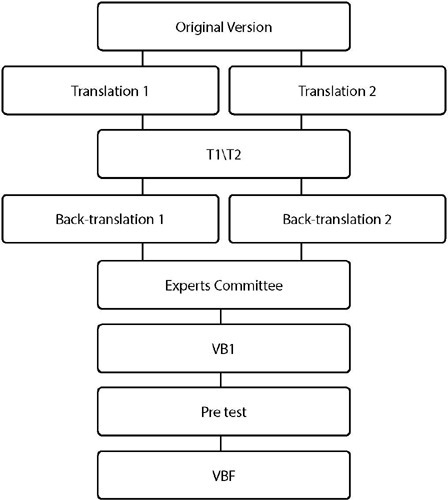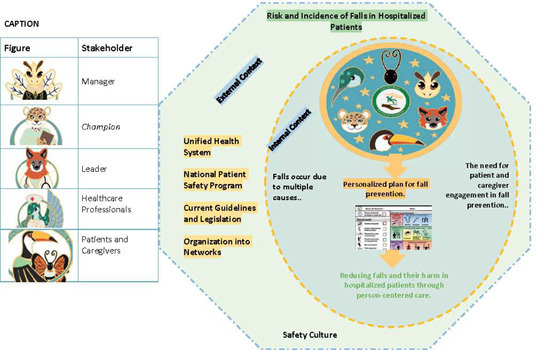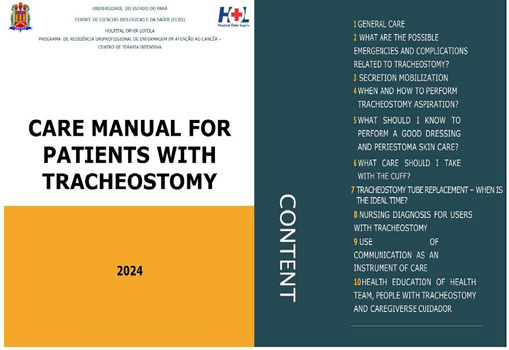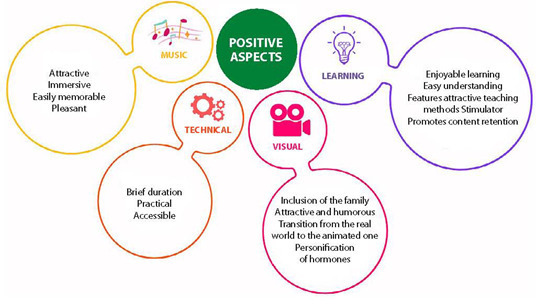-
01-01-2017
Enfermagem em cardiologia: estado da arte e fronteiras do conhecimento
Revista Brasileira de Enfermagem. 2017;70(3):451-452
Abstract
Enfermagem em cardiologia: estado da arte e fronteiras do conhecimento
Revista Brasileira de Enfermagem. 2017;70(3):451-452
DOI 10.1590/0034-7167.2017700301
Views0As doenças cardíacas lideram o grupo das desordens clínicas de maiores taxas de hospitalização e mortalidade, além de apresentarem um progressivo aumento da incidência na população devido ao envelhecimento concomitante ao desenvolvimento das terapias e tecnologias em saúde. Uma estimativa obtida pelo DATASUS() acusa um gasto onerado ao sistema de saúde do país, no ano […]See more -
01-01-2017
Nursing in cardiology: state of the art and frontiers of knowledge
Revista Brasileira de Enfermagem. 2017;70(3):451-452
Abstract
Nursing in cardiology: state of the art and frontiers of knowledge
Revista Brasileira de Enfermagem. 2017;70(3):451-452
DOI 10.1590/0034-7167.2017700301
Views0Heart diseases lead the group of clinical disorders with higher rates of hospitalization and mortality and present a progressive increase in incidence due to population ageing, simultaneously to the development of new health therapies and technology. DATASUS() estimated a cost of nearly 700 million Reais for the country’s health care system in 2015, only for […]See more -
REFLECTION01-01-2017
Nursing care in early childhood: contributions from intersubjective recognition
Revista Brasileira de Enfermagem. 2017;70(2):446-450
Abstract
REFLECTIONNursing care in early childhood: contributions from intersubjective recognition
Revista Brasileira de Enfermagem. 2017;70(2):446-450
DOI 10.1590/0034-7167-2016-0319
Views0See moreABSTRACT
Objective:
to understand the elements composing intersubjective recognition that are relevant for nursing care in early childhood in favor of comprehensive child development.
Method:
reflexive study based on the Honnethian concept of intersubjective recognition in the dimensions of affection, defense of rights, and social esteem.
Results:
nursing knowledge and practices, permeated by the intersubjective recognition in the mentioned dimensions, contribute to the dynamism of interpersonal relations, the production of co-responsibility, and shared construction of health care in early childhood, with benefits to comprehensive development.
Conclusion:
a successful coordination of the three intersubjective dimensions enables the expansion of the understanding on childhood and nursing care in child health in the field of human development promotion, covering affection, defense of rights, and social esteem in the established relationships with future positive individual and social possibilities.
-
REFLECTION01-01-2017
Hand hygiene as a caring practice: a reflection on professional responsibility
Revista Brasileira de Enfermagem. 2017;70(2):442-445
Abstract
REFLECTIONHand hygiene as a caring practice: a reflection on professional responsibility
Revista Brasileira de Enfermagem. 2017;70(2):442-445
DOI 10.1590/0034-7167-2016-0189
Views0See moreABSTRACT
Hand hygiene represents a fundamental nursing care practice and is traditionally considered the most important and effective measure in the prevention and control of healthcare-related infections. However, studies indicate that adherence to the procedure is unsatisfactory throughout the world, and show low adherence rates. In a context in which patient safety stands out as a priority, this text submits refl ections about professional responsibility when not adhering to hand hygiene practices, and ethical aspects related to this conduct.
-
REFLECTION01-01-2017
Systematization of nursing care and the formation of professional identity
Revista Brasileira de Enfermagem. 2017;70(2):436-441
Abstract
REFLECTIONSystematization of nursing care and the formation of professional identity
Revista Brasileira de Enfermagem. 2017;70(2):436-441
DOI 10.1590/0034-7167-2016-0515
Views0See moreABSTRACT
The aim of this study is to explore arguments that broaden the understanding of possible links between the organization of nursing care and the structuring of professional identity. For that purpose, some aspects related to these themes are addressed, highlighting issues regarding differences in the concepts of the organization of nursing care and the nursing process, as well as the performance of this activity and its possible impact on the establishment of its relationship with the professional identity. Emphasis is given to the need to stimulate the debate on the subject by nursing professionals involved in the training of human resources and the provision of care, as well as in class entities, in order to deepen understanding of these concepts as significant elements for strengthening our professional identity.
-
REFLECTION01-01-2017
Brazilian method for the development terminological subsets of ICNP®: limits and potentialities
Revista Brasileira de Enfermagem. 2017;70(2):430-435
Abstract
REFLECTIONBrazilian method for the development terminological subsets of ICNP®: limits and potentialities
Revista Brasileira de Enfermagem. 2017;70(2):430-435
DOI 10.1590/0034-7167-2016-0308
Views1See moreABSTRACT
Reflection on the limits and potentialities of a Brazilian method for the development of terminological subsets of ICNP®,(International Classification for Nursing Practice) based on the correlation between this method and international methods. This issue has been debated by the International Council of Nurses (ICN). Although the council propose a guideline for elaboration, they encourage and reinforce the use of various perspectives and processes in the development of subsets. Brazilian Nursing needs to propose a method and deepen reflections on the use of terminological subsets of ICNP® in the reality of the country. The development of subsets in Brazil is considered incipient and the proposed method needs to be used and deepened in order to spread the use of terminology through the application of subsets.
-
EXPERIENCE REPORT01-01-2017
Focus group on qualitative research: experience report
Revista Brasileira de Enfermagem. 2017;70(2):424-429
Abstract
EXPERIENCE REPORTFocus group on qualitative research: experience report
Revista Brasileira de Enfermagem. 2017;70(2):424-429
DOI 10.1590/0034-7167-2016-0091
Views0See moreABSTRACT
Objective:
to report the experience of applying the focus group technique for production of data in qualitative research.
Method:
four group sessions were held from May to June 2015, with the participation of professionals from the public sector of PHC and from specialized service.
Results:
the way focus group was developed is described in steps: planning, recruitment, ambience, group sessions, and evaluation.
Conclusion:
we highlight that the focus group, as a technique to produce data in collective space, can contribute not only to the construction of knowledge in Nursing, but also to the research approach with the assistance practice.

-
REVIEW01-01-2017
Patient with stroke: hospital discharge planning, functionality and quality of life
Revista Brasileira de Enfermagem. 2017;70(2):415-423
Abstract
REVIEWPatient with stroke: hospital discharge planning, functionality and quality of life
Revista Brasileira de Enfermagem. 2017;70(2):415-423
DOI 10.1590/0034-7167-2016-0166
Views0See moreABSTRACT
Objective:
analyze the strategies of hospital discharge planning for these patients, increasing the knowledge related to hospitalhome transition, discharge planning processes and the main impact on the quality of life and functionality.
Method:
integrative literature review using the PICOD criteria, with database research.
Results:
19 articles were obtained, using several approaches and contexts. For quality of life, the factors related to the patient satisfaction with care and the psychoemotional aspects linked with functionality are the most significant.
Conclusion:
during the hospitalization period, a careful hospital discharge planning and comprehensive care to patients and caregivers – in particular the functional and psychoemotional aspects – tend to have an impact on the quality of life of patients.

-
06-14-2024
Duração e qualidade do sono da equipe de enfermagem brasileira que trabalha em turnos
Revista Brasileira de Enfermagem. 2024;77(2):e20230167
Abstract
Duração e qualidade do sono da equipe de enfermagem brasileira que trabalha em turnos
Revista Brasileira de Enfermagem. 2024;77(2):e20230167
DOI 10.1590/0034-7167-2023-0167
Views0See moreRESUMEN
Objetivo:
analizar la duración y calidad del sueño en profesionales de enfermería que trabajan por turnos.
Método:
investigación analítica, transversal, realizada entre septiembre de 2017 y abril de 2018, en un hospital público del sur de Brasil, con el equipo de enfermería. Se utilizó el cuestionario sociolaboral y de síntomas de salud, la Escala de Somnolencia de Epworth y el Índice de Calidad del Sueño de Pittsburgh. Los datos se presentan como estadística descriptiva e inferencial, análisis bivariado y regresión logística binaria.
Resultados:
participaron 308 profesionales de enfermería, con predominio de sueño prolongado, ausencia de somnolencia y mala calidad del sueño. La duración corta del sueño (<6 h) se asoció con turnos de día y mala calidad del sueño. La calidad del sueño se asoció con la presencia de somnolencia diurna excesiva y con el trabajo diurno.
Conclusión:
los turnos de trabajo, el insomnio y la cefalea fueron los principales factores relacionados con la falta de sueño de los profesionales de enfermería. Los resultados pueden justificar el desarrollo de investigaciones de intervención para la salud de los trabajadores.
-
ORIGINAL ARTICLE06-14-2024
Sleep duration and quality of Brazilian nursing staff who work in shifts
Revista Brasileira de Enfermagem. 2024;77(2):e20230167
Abstract
ORIGINAL ARTICLESleep duration and quality of Brazilian nursing staff who work in shifts
Revista Brasileira de Enfermagem. 2024;77(2):e20230167
DOI 10.1590/0034-7167-2023-0167
Views0See moreABSTRACT
Objective:
to analyze sleep duration and sleep quality in nursing professionals who work in shifts.
Method:
this is a cross-sectional, analytical research, carried out between September 2017 and April 2018, at a public hospital in southern Brazil, with the nursing team. A socio-occupational and health symptoms questionnaire, the Epworth Sleepiness Scale, and the Pittsburgh Sleep Quality Index were used. Data are presented as descriptive and inferential statistics, bivariate analysis, and binary logistic regression.
Results:
participants were 308 nursing professionals with a predominance of long-term sleep, absence of drowsiness, and poor sleep quality. Short-term sleep (<6h) was associated with day shift and poor sleep quality. Sleep quality was associated with presence excessive daytime sleepiness and work day shift.
Conclusion:
work shift, insomnia and headache were the main factors related short-term sleep for nursing professionals. The results may justify the development of intervention research for workers’ health.
-
ORIGINAL ARTICLE06-14-2024
Translation and Cross-Cultural Adaptation of the LYMPH-ICF Instrument for Lymphedema into Portuguese/Brazil
Revista Brasileira de Enfermagem. 2024;77(2):e20230137
Abstract
ORIGINAL ARTICLETranslation and Cross-Cultural Adaptation of the LYMPH-ICF Instrument for Lymphedema into Portuguese/Brazil
Revista Brasileira de Enfermagem. 2024;77(2):e20230137
DOI 10.1590/0034-7167-2023-0137
Views0See moreABSTRACT
Objective:
The aim of this study is to cross-culturally adapt the Lymphoedema Functioning, Disability and Health Questionnaire Lymphoedema (LYMPH-ICF) instrument into Brazilian Portuguese and conduct a pilot application (n = 10), without psychometric pretensions.
Method:
Methodological research was conducted, following the steps of translation, synthesis, back-translation, and evaluation by the expert committee. Two translators, two back-translators, and twelve professionals participated in the expert committee. A pretest was carried out with 10 patients with secondary lymphedema due to breast cancer. The degree of agreement was determined by the content validity coefficient.
Results:
It was necessary to modify 8 out of the 29 questions comprising the questionnaire, which exhibited idiomatic disagreement. However, despite these changes, there were no indications of impairments, as content reliability was achieved through a validity coefficient of 0.90.
Final Considerations:
The instrument was successfully translated and cross-culturally adapted for Brazil with a high level of agreement.

-
ORIGINAL ARTICLE05-27-2024
Fall Tailoring Interventions for Patient Safety Brazil Program: an evaluability study in a teaching hospital
Revista Brasileira de Enfermagem. 2024;77(2):e20230348
Abstract
ORIGINAL ARTICLEFall Tailoring Interventions for Patient Safety Brazil Program: an evaluability study in a teaching hospital
Revista Brasileira de Enfermagem. 2024;77(2):e20230348
DOI 10.1590/0034-7167-2023-0348
Views0See moreABSTRACT
Objectives:
to present the theoretical model, logic model, and the analysis and judgment matrix of the Fall TIPS Brazil Program.
Methods:
a qualitative, participatory research approach, in the form of an evaluability study, encompassing the phases (1) problem analysis; (2) program design, development, and adaptation to the Brazilian context; (3) program dissemination. Data were collected through document analysis and workshops.
Results:
through document analysis, workshops with stakeholders from the participating institution, and validation with key informants, it was possible to identify the program’s objectives, expected outcomes, and the target audience. This allowed the construction of theoretical and logic models and, through evaluative questions, the identification of indicators for the evaluation of the Fall TIPS Brazil Program.
Final Considerations:
this study has provided insights into the Fall TIPS program, the topic of hospital fall prevention, and the proposed models and indicators can be employed in the implementation and future evaluative processes of the program.

-
ORIGINAL ARTICLE05-27-2024
Nursing care protocol for critical users with tracheostomy under mechanical ventilation
Revista Brasileira de Enfermagem. 2024;77(2):e20230337
Abstract
ORIGINAL ARTICLENursing care protocol for critical users with tracheostomy under mechanical ventilation
Revista Brasileira de Enfermagem. 2024;77(2):e20230337
DOI 10.1590/0034-7167-2023-0337
Views0See moreABSTRACT
Objectives:
to develop and assess a nursing care protocol for critically ill users with tracheostomy under mechanical ventilation.
Methods:
a methodological study, developed through two phases, guided by the 5W2H management tool: I) target audience characterization and II) technology development.
Results:
thirty-four nursing professionals participated in this study, who presented educational demands in relation to care for critical users with tracheostomy, with an emphasis on standardizing care through a protocol and carrying out continuing education.
Final Considerations:
the creation and validity of new technologies aimed at this purpose enhanced the participation of nursing professionals and their empowerment in the health institution’s microsectoral actions and in macrosectoral actions, highlighting the need for public policies that guarantee the conduct of a line of care for users with tracheostomy.

-
ORIGINAL ARTICLE05-27-2024
Assessment of educational technology in lactation physiology by health students
Revista Brasileira de Enfermagem. 2024;77(2):e20230252
Abstract
ORIGINAL ARTICLEAssessment of educational technology in lactation physiology by health students
Revista Brasileira de Enfermagem. 2024;77(2):e20230252
DOI 10.1590/0034-7167-2023-0252
Views0See moreABSTRACT
Objectives:
to assess the suitability, facilitators, and barriers of using a video clip for teaching lactation physiology to health students.
Methods:
a cross-sectional study was conducted with online data collection at a higher education institution, using the Assistive Technology Assessment Instrument and open-ended questions. The sample consisted of 88 students.
Results:
the video clip was deemed suitable in all attributes. Facilitators identified included attractiveness, musicality, and ease of access. Barriers noted were the music’s speed and the necessity for prior knowledge. The video clip achieved adequate scores for interactivity (1.71), purpose (1.77), relevance (1.64), and clarity (1.77). The overall average of the attributes was 1.72.
Conclusions:
the video clip can serve as an effective learning strategy to enhance hybrid education, potentially contributing to the promotion and support of breastfeeding. However, some barriers underscore the importance of prior knowledge for a complete understanding of the content.

-
ORIGINAL ARTICLE05-27-2024
Technology for nursing care in a Maternal Intensive Care Unit: a methodological study
Revista Brasileira de Enfermagem. 2024;77(2):e20230202
Abstract
ORIGINAL ARTICLETechnology for nursing care in a Maternal Intensive Care Unit: a methodological study
Revista Brasileira de Enfermagem. 2024;77(2):e20230202
DOI 10.1590/0034-7167-2023-0202
Views0See moreABSTRACT
Objectives:
to develop and validate a nursing care plan in a Maternal Intensive Care Unit.
Methods:
a methodological study, developed in stages: integrative review; Nursing History construction; care plan restructuring; appearance and content validity by judges.
Results:
the history was organized into sections: Identification; Basic Human Needs; Physical Examination; and Assessment of Basic Human Needs. A care plan was restructured with 34 diagnoses, organized according to basic human needs. A satisfactory level of appearance validity of the history and care plan was obtained (Concordance Index varying between 86.3 and 100 for both instruments), and content validity with average indexes of 90.8 and 92.8, respectively. Thirty-four diagnoses, their interventions and nursing actions were consolidated.
Conclusions:
the instruments were considered relevant and pertinent in terms of appearance and content, and their use in the institution under study as well as in other similar services may be recommended.
-
05-13-2024
Metodologia qualitativa: considerações e singularidades sobre a implementação de intervenções centradas na pessoa
Revista Brasileira de Enfermagem. 2024;77(3):e770301
Abstract
Metodologia qualitativa: considerações e singularidades sobre a implementação de intervenções centradas na pessoa
Revista Brasileira de Enfermagem. 2024;77(3):e770301
DOI 10.1590/0034-7167.2024770301pt
Views0A investigação qualitativa em saúde permite a compreensão aprofundada de como a pessoa experiencia as diferentes transições de saúde, a relação com os profissionais de saúde e a passagem pelos diferentes ambientes de prática clínica. Concomitantemente, tem o potencial de suportar a tomada de decisão clínica dos profissionais e de empoderar o cidadão na sua […]See more
-
06-01-2015
Elderly families of South of Brazil in the Health Strategy
Revista Brasileira de Enfermagem. 2015;68(3):406-413
Abstract
Elderly families of South of Brazil in the Health Strategy
Revista Brasileira de Enfermagem. 2015;68(3):406-413
DOI 10.1590/0034-7167.2015680305i
Views0See moreABSTRACT
Objective:
to characterize families and health status of the elderly in the Family Health Strategy and to verify the association of family composition with sociodemographic characteristics and health of the elderly.
Method:
population-based study with 215 families and 266 elderly, linked to the Family Health Strategy from a city of Rio Grande do Sul state.
Results:
there was predominance of nuclear family composition, considered as the main source of informal support, families of female elderly (62.6%) and cardiovascular complication. The nuclear structure was signifi cantly associated with female gender (PR = 0.77; p = 0.025) and smoking (PR = 1.35; p = 0.009).
Conclusion:
the results reinforce the need to maintain a network of formal and informal support to the elderly and their families to preserve the independence or to postpone the decline in functional capacity.
-
06-01-2015
From real to ideal – the health (un)care of long-lived elders
Revista Brasileira de Enfermagem. 2015;68(3):398-405
Abstract
From real to ideal – the health (un)care of long-lived elders
Revista Brasileira de Enfermagem. 2015;68(3):398-405
DOI 10.1590/0034-7167.2015680304i
Views0See moreABSTRACT
Objective:
to analyze similarities and dissimilarities in the meanings assigned to health care by long-lived elders and nursing professionals in a healthcare setting.
Method:
ethnographic qualitative research, based on the Spradley-McCurdy method and the interpretive anthropology of Geertz and Kleinman. The sample consisted of 20 key informants. Data were collected through participatory observation and ethnographic interviews from March to October 2013 and analyzed in domains, taxonomies and cultural themes.
Results:
Six domains and cultural taxonomies emerged and revealed reasons, attributes, and resources in providing care in relationship to long-lived elders and nursing professionals; fi nally, the following cultural theme emerged: the real to the ideal – the health (un)care of long-lived elders.
Conclusion:
The study showed the distance between the desired and actual health care provided to aged people in the scenario studied.
-
06-01-2015
Rescuing the pleasure of playing of child with cancer in a hospital setting
Revista Brasileira de Enfermagem. 2015;68(3):391-397
Abstract
Rescuing the pleasure of playing of child with cancer in a hospital setting
Revista Brasileira de Enfermagem. 2015;68(3):391-397
DOI 10.1590/0034-7167.2015680303i
Views0See moreABSTRACT
Objective:
to dimension spaces and people that act on playing of children with cancer in outpatient treatment.
Method:
qualitative research developed with the creative sensitive method. A total of twenty two family members of seven children with cancer in outpatient treatment at a public hospital in Rio de Janeiro participated of this research. Data were generated in the family members’ homes, from September 2011 to May 2012.
Results:
after the diagnosis of childhood cancer, there was a change of scene and in the people who interact and play with children. Hospital has a central place for it, since children discover the pleasure of playing in this setting.
Conclusion:
the health care professional, especially nurses, who work on hospital care needs, should develop the ability of facilitate playing and therefore, enable care that promotes childhood development.
-
06-01-2015
Child Health Surveillance: nurses perspective
Revista Brasileira de Enfermagem. 2015;68(3):384-390
Abstract
Child Health Surveillance: nurses perspective
Revista Brasileira de Enfermagem. 2015;68(3):384-390
DOI 10.1590/0034-7167.2015680302i
Views0See moreABSTRACT
Objective:
to analyze conceptions of nurses on child health surveillance in family health units.
Method:
a qualitative study with thematic analysis of the data, based on the paradigm of Health Surveillance. Interviews were conducted with 13 nurses in a countryside city in the state of Sao Paulo.
Results:
nurses conceived child health surveillance as an active monitoring, which should be comprehensive, identifying risks/vulnerabilities, through multidisciplinary and intersectoral actions that are dependent on maternal involvement. We found partial development of these assumptions in practice, due to diffi culties such as lack of maternal involvement in the proposed actions, lack of time for discussion and adoption of measures in the units and disarticulation between levels and sectors of the city.
Conclusion:
a greater political and technical investment is needed to ensure the adoption of this model in different sectors and levels of care of the city.
-
06-01-2015
The many sides of Research Integrity: For Integrity in Nursing!
Revista Brasileira de Enfermagem. 2015;68(3):375-377
Abstract
The many sides of Research Integrity: For Integrity in Nursing!
Revista Brasileira de Enfermagem. 2015;68(3):375-377
DOI 10.1590/0034-7167.2015680301i
Views1We recently had the opportunity to participate in the 4th World Conference on Research Integrity in Rio de Janeiro. For us researchers, professors, authors, reviewers and scientific editors of nursing periodicals, the event was a watershed: From this point forward, we must step up our game and catch up with other areas that already discuss […]See more -
06-01-2015
As diversas faces da Integridade em Pesquisa: por uma Enfermagem íntegra!
Revista Brasileira de Enfermagem. 2015;68(3):375-377
Abstract
As diversas faces da Integridade em Pesquisa: por uma Enfermagem íntegra!
Revista Brasileira de Enfermagem. 2015;68(3):375-377
DOI 10.1590/0034-7167.2015680301i
Views0Recentemente, tivemos oportunidade de participar da 4ª Conferência Mundial de Integridade em Pesquisa, no Rio de Janeiro. Para nós, pesquisadores, docentes, autores, pareceristas e editores científicos de periódicos de Enfermagem foi um evento divisor de águas: de ora em diante precisamos apertar o passo para alcançar as áreas que já têm as questões de Integridade […]See more -
01-01-2015
Professional Master’s Degree: potential contribution to Advanced Practice Nursing
Revista Brasileira de Enfermagem. 2015;68(6):1186-1189
Abstract
Professional Master’s Degree: potential contribution to Advanced Practice Nursing
Revista Brasileira de Enfermagem. 2015;68(6):1186-1189
DOI 10.1590/0034-7167.2015680626i
Views0See moreABSTRACT
A reflection articleabout the contribution of Master’s Degree Programs in Advanced Practice Nursing and the Universal Health Coverage and the Universal Health Access, topicsthat have been discussed by the Pan American Health Organization, and which the Brazilian Nursingrequires not just appropriate, but further studyto reflect in order to define directions for our profession.
-
01-01-2015
Concept of family insufficiency in the aged: critical literature analysis
Revista Brasileira de Enfermagem. 2015;68(6):1176-1185
Abstract
Concept of family insufficiency in the aged: critical literature analysis
Revista Brasileira de Enfermagem. 2015;68(6):1176-1185
DOI 10.1590/0034-7167.2015680625i
Views0See moreABSTRACT
Objective:
to identify the attributes of the “family insufficiency” concept of the aged in the literature.
Method:
critical literature analysis.
Results:
family insufficiency is characterized as a complex process of psychosocial interaction, founded mainly on low social support of the aged and impaired family ties. Its antecedents are found in contemporary transformations within the family system, intergenerational conflicts, impaired family relationships and social vulnerability of the family. The consequences of family insufficiency include social vulnerability of the aged, decline of psychological and functional health, lower quality of life and unsuccessful aging. An original theoretical proposal was elaborated for the concept of family insufficiency in the elderly, with the identification of its attributes, antecedents and consequences.
Conclusion:
the findings of this study constitute a theoretical advancement in the Family Insufficiency Syndrome in elderly people and provide data for future field research in developing the concept.
Search
Search in:
Nuvem de Tags
Adolescente (85) Atenção Primária à Saúde (239) COVID-19 (91) Criança (91) Cuidados de Enfermagem (269) Educação em Enfermagem (151) Educação em Saúde (139) Enfermagem (930) Enfermagem Pediátrica (86) Estudantes de Enfermagem (77) Estudos de Validação (131) Família (87) Idoso (208) Promoção da Saúde (99) Qualidade de Vida (104) Saúde do Trabalhador (86) Saúde Mental (145) Saúde Pública (82) Segurança do Paciente (150) Tecnologia Educacional (100)



